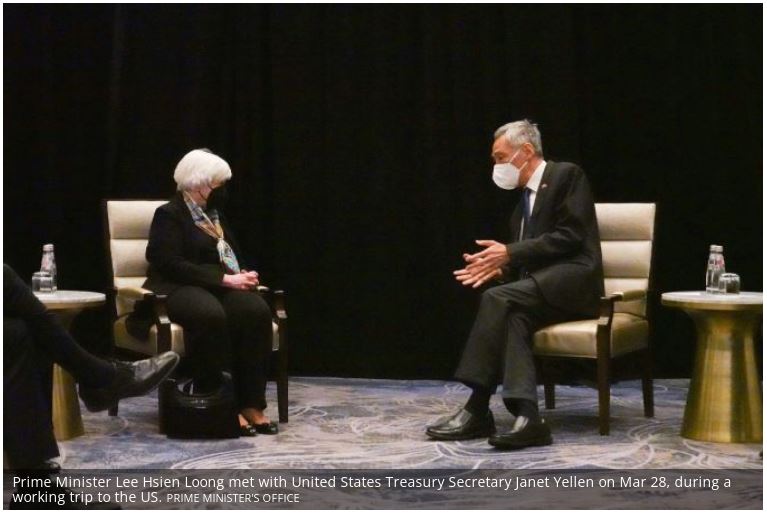Singapore signs international pact for space exploration
SINGAPORE has become the first South-east Asian country to sign the Artemis Accords, an agreement between countries to abide by certain key principles when conducting space exploration activities.
Minister for Trade and Industry Gan Kim Yong signed the Accords on behalf of Singapore on Monday (Mar 28) in Washington DC.
Established in 2020, the Artemis Accords were initiated by the National Aeronautics and Space Administration (Nasa) in the US to promote the peaceful, sustainable and beneficial use of space for humankind.
Signatories have agreed to be transparent in the dissemination of information regarding their space policies and plans, and to commit to open sharing of scientific data. They have also agreed that the extraction and usage of space resources should be conducted in a manner that complies with the Outer Space Treaty of 1967, among other conditions.
Singapore is the 18th signatory of the Accords. The founding member nations include the UK, Japan and the United Arab Emirates. Other signatories include Romania, Ukraine, Brazil and Korea.
The signing happened on the sidelines of Prime Minister Lee Hsien Loong’s ongoing, week-long bilateral visit to the United States, which ends on Apr 2. During his meeting with US Treasury Secretary Janet Yellen, he and Yellen discussed cooperation at international fora to deal with emerging challenges affecting the global financial system.
They also exchanged views on domestic responses to facilitate pandemic recovery and discussed regional and international issues, including the developments in Ukraine, Lee’s press secretary, Chang Li Lin, said.
“Prime Minister Lee and Secretary Yellen welcomed the growing economic and financial cooperation between Singapore and the US bilaterally and internationally, including the US-Singapore Climate Partnership and sustainable finance,” Chang added.
Spacetech is an emerging industry that Singapore, a relatively new player, has been investing in. Last month, the government announced that S$150 million will go to research and development for space capabilities in nationally important sectors such as aviation and maritime, and for other everyday applications.
Singapore’s indigenously-developed satellite, the X-SAT, was launched in 2011. To date, 16 satellites have been built in Singapore and launched into space, mostly comprising research satellites from the National University of Singapore (NUS) and Nanyang Technological University (NTU).
But the city-state’s spacetech startup scene is getting more vibrant, supported by funding programmes, universities and government agencies. The industry now has over 50 companies, including many startups, which employ over 1,800 professionals.
In January, two local startups were involved in the successful deployment of a satellite during a space mission launched from the US by SpaceX. The Internet of Things satellite was developed by NUS spin-off NuSpace; the engine fitted to the satellite, weighing less than 2 kg, was developed by NTU spin-off Aliena.
The Office for Space Technology & Industry, which was set up under the Economic Development Board in 2013, became a full-fledged national space office in April 2020. Among other areas, it is exploring how space-based communications, navigation and surveillance technologies can help improve air and maritime traffic management.
Source: https://www.businesstimes.com.sg/government-economy/singapore-signs-international-pact-for-space-exploration


 English
English




